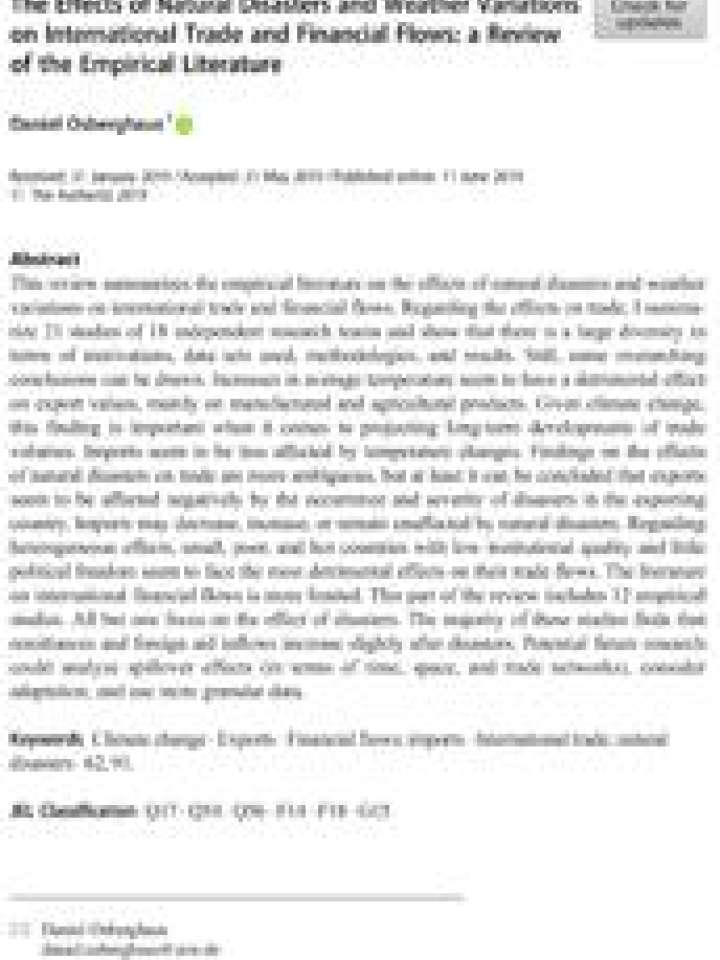The effects of natural disasters and weather variations on international trade and financial flows: A review of the empirical literature
This review summarizes the empirical literature on the effects of natural disasters and weather variations on international trade and financial flows. Regarding the effects on trade, the author summarizes 21 studies of 18 independent research teams and shows that there is a large diversity in terms of motivations, data sets used, methodologies, and results.
Still, some overarching conclusions can be drawn. Increases in average temperature seem to have a detrimental effect on export values, mainly on manufactured and agricultural products. Given climate change, this finding is important when it comes to projecting long-term developments of trade volumes. Imports seem to be less affected by temperature changes. Findings on the effects of natural disasters on trade are more ambiguous, but at least it can be concluded that exports seem to be affected negatively by the occurrence and severity of disasters in the exporting country. Imports may decrease, increase, or remain unaffected by natural disasters.
Regarding heterogeneous effects, small, poor, and hot countries with low institutional quality and little political freedom seem to face the most detrimental effects on their trade flows. The literature on international financial flows is more limited. This part of the review includes 12 empirical studies. All but one focus on the effect of disasters. The majority of these studies finds that remittances and foreign aid inflows increase slightly after disasters. Potential future research could analyze spillover effects (in terms of time, space, and trade networks), consider adaptation, and use more granular data.
Explore further
